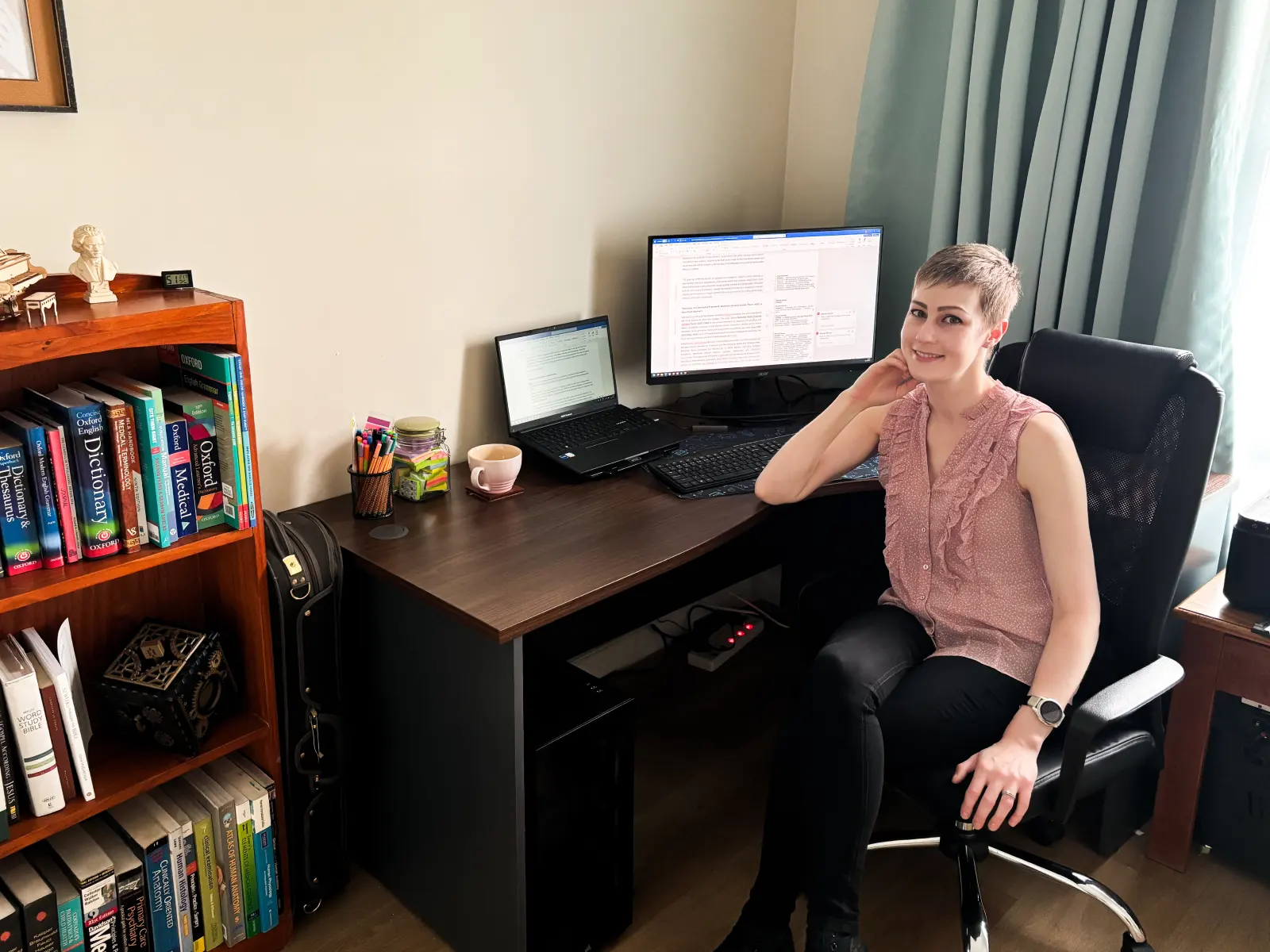Inspiration evading you? Step away from your computer and find the words elsewhere.
BY JUDY BOTHA
Writing requires a great deal of discipline, perseverance and sitting at your computer ‘keeping on keeping on’. How many times have you stared at a glowing screen, willing the perfect opening line to appear? Have you frowned at your draft, searching for that elusive final phrase to close it off? But the harder you push, the further the words seem to slip from reach.
Sometimes the words are best found away from your desk. I’ve found three strategies that somehow bring the words to me.
Creative cross-training: boost writing ideas through creative activities
That adage, ‘Creativity begets creativity’, rings true here. Engaging in a creative activity gets the imagination flowing and stimulates the mind.
And, as creativity coach Chris Gundemann points out, ‘… the things you create do not have to be related in any way to help create new ideas and generate new inspirations.’ So, sketch a scene, compose a song, snap some inspiring photographs.
For me, it’s crafting a new dish in the kitchen. The more testing and complex the meal, the more I relish the challenge. I can feel my neural pathways working overtime and those creative juices flowing.
Generally, I don’t come up with the words while I’m cooking, but I find myself on a bit of a ‘creative high’ after concocting a new culinary creation. Then I feel inspired to sit down at my laptop with renewed vigour.
How it works: the science behind creative cross-training
Context switching and defocused attention aids idea incubation. When you engage in a different creative activity, your brain shifts into what neuroscientists call the ‘default mode network’ – a state where your mind makes unexpected connections between seemingly unrelated concepts. This process, known as ‘incubation,’ allows your subconscious to work on writing problems while your conscious mind focuses elsewhere.
The tactile nature of activities like cooking, drawing or crafting also activates different neural pathways to writing, giving your verbal processing centres a rest while stimulating spatial and sensory regions. This neural variety creates fresh perspectives that can unlock new approaches to your writing challenges.
Try this:
- Set a 20-minute timer; pick a tactile task (sketch a thumbnail, knead dough, fold origami).
- Keep your phone on voice notes to capture any phrase that surfaces.
- Return and write one paragraph.
Exercise for writers: how physical activity unlocks creative breakthrough
The physical and mental benefits of exercise are widely known. But increasingly, scientists are looking into the link between exercise and creativity. Dr Chong Chen, assistant professor in the department of neuroscience at Yamaguchi University in Japan, states, ‘Even a single, brief bout of aerobic exercise can ignite creative thinking.’
I take a brisk walk or a short run – the combination of moving my body and being outdoors creates space and clarity in my mind. It’s during these moments that I often come up with precise words for a line or paragraph that I’ve been struggling with. It’s as if the ideas have been rolling around as lumps of coal in my mind, and the exercise and fresh air transform them into diamonds.
I sometimes have to stop myself from jumping for joy as the words crystallise in my head. There is then much urgency to get home and record those words for fear they may revert to coal!
Why it works: Brief aerobic movement can boost divergent thinking for a short window afterwards.
Try this:
- 10–15 minutes brisk walk outside; no podcast or music.
- Carry a notepad or dictate a single sentence.
- Back at the desk, set a 10-minute timer and expand that sentence.

Mindful procrastination: how to use ‘mindless’ activities for writing breakthroughs
As performance coach Nina Amir puts it: ‘… the best way to generate an idea when you need one is to think about something else – or, better yet, don’t think about anything specific at all.’
Often after a busy day, I need thirty minutes or so to decompress on the couch. I watch what I call ‘mindless’ television – something that doesn’t require you to follow an intense plot or invest much emotionally. Frequently, it’s reality TV, where I’m kind of half-watching, half-thinking-about-all-sorts-of-other-things.
Ideas start to formulate while I’m staring at the TV. Maybe something I’m seeing subconsciously triggers an idea, or all the events from the day running through my mind spark a concept. I don’t have the clarity of mind that I do when I’m exercising, so precise words or lines don’t necessarily come to me, but the buds of an angle or idea start to form.
I generally let the concept rattle around in my head for a few days while it grows and takes shape. It will develop a bit more while I’m taking a shower, watering my pot plants or grocery shopping. After a day or two, I’ll feel ready to start ‘putting pen to paper’.
Why it works: Diffuse thinking activates creative problem-solving networks. When you engage in low-cognitive-load activities, your brain enters a relaxed state where your mind makes loose, creative associations rather than focused, analytical connections. This is when your subconscious processes information you’ve absorbed throughout the day, connecting dots you weren’t consciously aware of.
During these seemingly ‘unproductive’ moments, your brain is actually highly active, consolidating memories and generating insights. The key is that the activity must be familiar and require minimal mental effort – allowing your prefrontal cortex to relax while deeper creative processes take over. This can lead to ‘aha’ moments that feel like they come from nowhere.
Try this:
- Choose activities that require less than 30% of your attention (folding laundry, washing dishes, showering).
- Keep a small notebook nearby – jot down concepts, not fully formed ideas.
- Allow 2-3 days for ideas to develop before attempting to write.
- Schedule these ‘mindless’ sessions after intensive writing work for maximum benefit.
Read more:
5 Ways to Deal with Writer’s Block
Writing Through Menopausal Brain Fog
Sometimes Writing Demands You Come Back Later
Balance focused writing time with creative recovery
So, no doubt, you need to put in the hours, ‘grafting’ at your computer and persevering – brainstorming, writing, deleting, rewriting, deleting, rewriting. But it’s helpful to balance that with time away from your laptop. Give your mind space and time.
Inspiration is all around us – sometimes in the most unexpected places.
About the Author

Judy Botha lives in the leafy suburb of Newlands, Cape Town. She is a passionate supporter of the arts and sees as much theatre as her budget possibly allows. To fund her theatre habit, she works as a learning designer in digital education. In her spare time, you’ll find her testing an Ottolenghi recipe in the kitchen, working her way through a growing tower of books, or volunteering in community theatre and meal preparation for U-turn Homeless Ministries.












